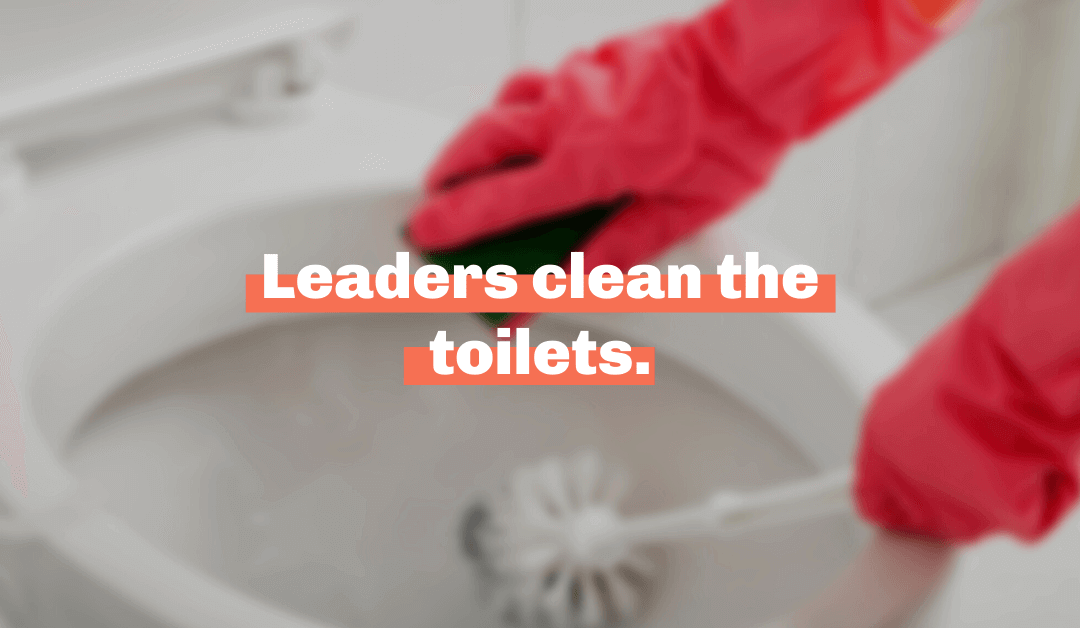
Leaders clean the toilets
Early in my career, I was a store manager for Levi’s. I loved my job and all of the responsibility that came along with retail management. But most of all, I loved being a part of that team.
There is something special about early morning floor changes, the constant rush of customers, and late-night shipment processing. There’s an urgency and excitement that means you always have to be at your best.
Retail comes with a unique set of experiences that bonds a team together very quickly.
As a manager, you learn how to do all of the jobs in the store. And hopefully, you also learn that no job is beneath you. You are responsible for every aspect of what happens in that space—from customer service, to merchandising, to keeping the store clean.
As much as it can be, it is your store.
For me, in my three-level store with 25+ employees and thousands of pairs of jeans, sometimes that meant I cleaned toilets.
You see, it was clear to me from very early on that I couldn’t ask my team to do anything that I wouldn’t do myself. How could I expect my team to respect me if they didn’t know I was reliable? After all, at the end of the day, I was just some guy with the keys and a title.
In that fast-paced environment, I formed a belief that has guided me as a leader ever since: There are two types of team members—people who clean the toilets and people who don’t.
I don’t mean janitors and everyone else. I mean that some team members don’t care about titles or what their job description says. They know what needs doing, and they will roll up their sleeves to get it done and help the team succeed.
Even if that means cleaning a toilet.
On the other side are team members who won’t clean the toilets. They think that they’ve already put in their time. That they’ve done the work. They think that those sometimes-dirty jobs are for someone else. Someone who has it in their job description. Someone with less experience.
After all, look at their business card. That sure is a fancy title.
Don’t be that team member.
Instead, as leaders, we should be proactive. Look at what your team is working on, and, without skirting your responsibilities, see where you can lend a hand.
Pick up the toilet brush.
With Q4 in full swing and a million things on the to-do list, who has time to worry about whether something is in your job description? If it needs to be done, do it. Process those gifts, write that email, stuff those envelopes.
Don’t brag about it. Don’t look to take the spotlight for doing something extra. Just do it. Your team will see it. They’ll respect you, and they’ll know that you can be counted on when times get tough.
Besides, who doesn’t love a clean toilet?


